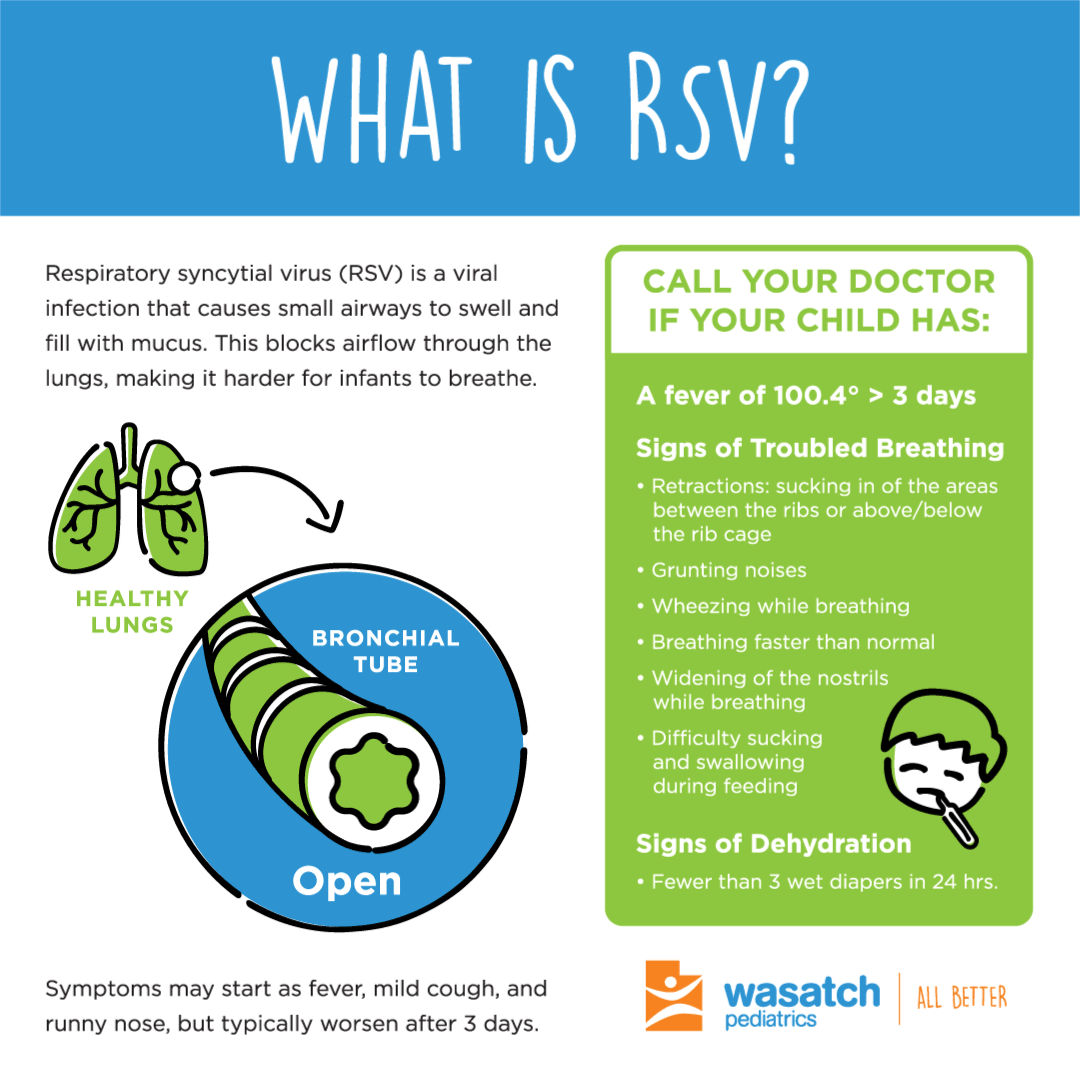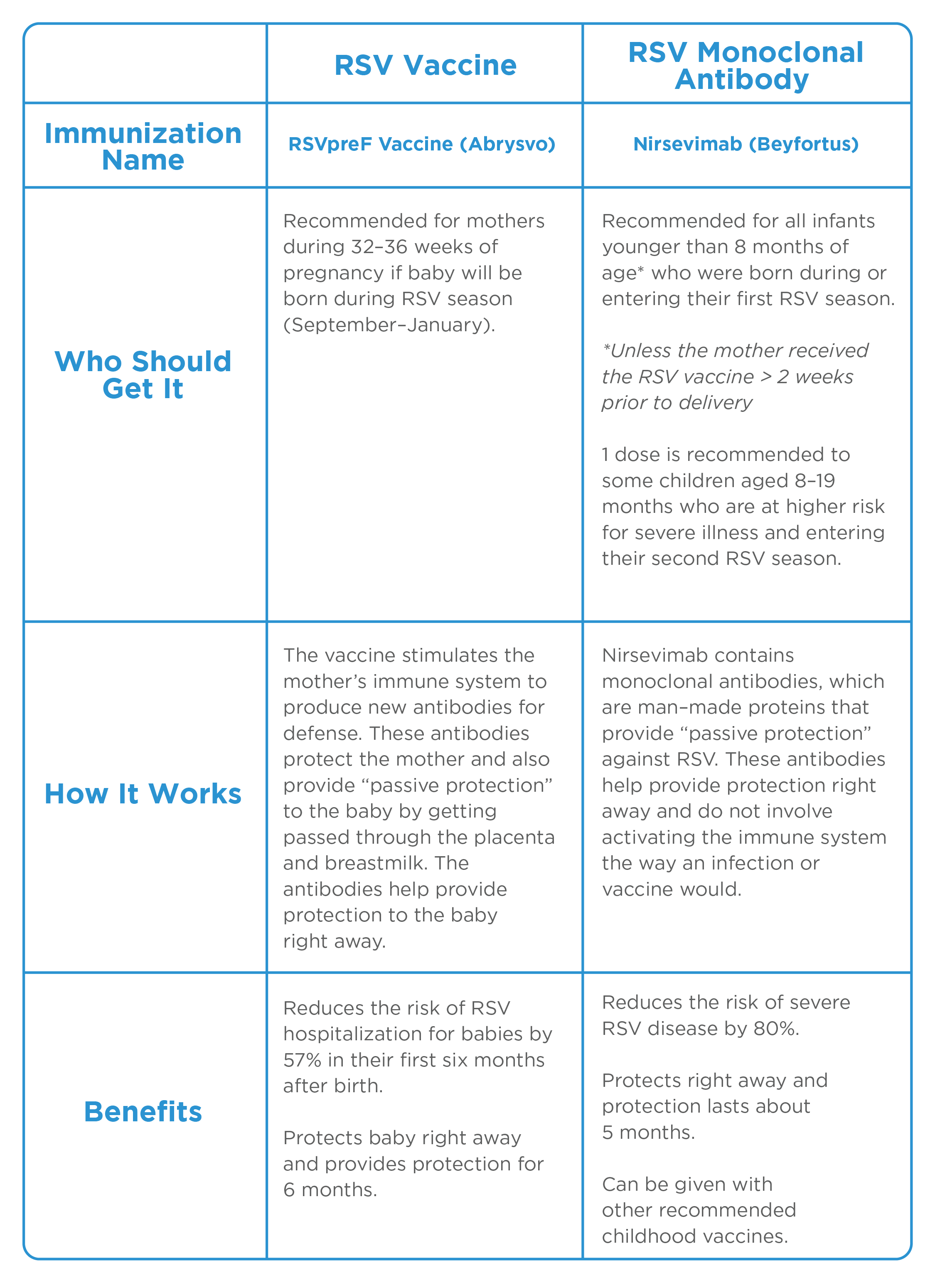Feb 23, 2023 /
Colds & Illnesses
By Carly Sorenson, DO
What You Need to Know About RSV
RSV—three simple letters that sometimes strike unease into the hearts of parents. But as with most seasonal respiratory illnesses, the more you know about RSV, the more you realize that most kids recover just fine on their own. You can also be prepared to take precautions and watch for signs and symptoms, so you can help your child get the right treatment, right away. Here’s everything you need to know about RSV.
RSV, short for respiratory syncytial virus, is a virus that causes respiratory illness (illness of the nose, throat, and lungs). The virus causes small airways to swell and fill with mucus, blocking airflow through the lungs, making it harder for infants and young children to breathe.
Despite the scary-sounding description, RSV is a very common virus. In fact, almost every child will get RSV at least once before they turn 2 years old. For most, RSV causes simple cold-like symptoms, but some kids can get very sick or even suffer through RSV multiple times in a single season.

Most often, RSV symptoms manifest as fever, a mild cough, and runny nose that typically worsen after three days and peak at around day five. Most children recover from RSV infection just fine on their own at home. While there is no cure or proven medications for RSV, there are some treatments that can help your child to feel more comfortable while fighting off the infection. These include:
You should avoid over-the-counter cold or cough medications, as they are not safe or effective for infants and young children.
Again, most children recover from RSV just fine on their own, but some may require more urgent medical attention. You should call your doctor right away if your child has any of the following symptoms:
As with other respiratory illnesses, some kids with RSV can develop a bacterial infection, such as an ear infection or pneumonia. Call your doctor if your child has symptoms that worsen or do not improve after seven days, including poor sleep, fussiness, or ear tugging.
Prevention is always the best medicine. Because RSV spreads like other cold viruses—from one person to another or by touching objects/surfaces—it’s important to keep your child’s hands clean. Wash your hands, and help your children to wash theirs, to prevent spreading RSV. Symptoms can appear as quickly as two to eight days after contact with RSV, and kids typically remain contagious for about three to eight days.
There are now 2 new immunizations to help protect babies from severe RSV infections. These include either a maternal vaccination during pregnancy or a monoclonal antibody immunization as an infant. Most infants will only need protection from one option, not both.

For more information about the immunizations, recommendations, and side effects click here.
With RSV and other common respiratory illnesses, knowledge is power. The more you know, the better you can prevent illness, watch for serious warning signs, and help your child to fully recover from RSV. As always, please reach out to your provider with any questions or concerns you may have about RSV or your child’s care.
©2026 Wasatch Pediatrics